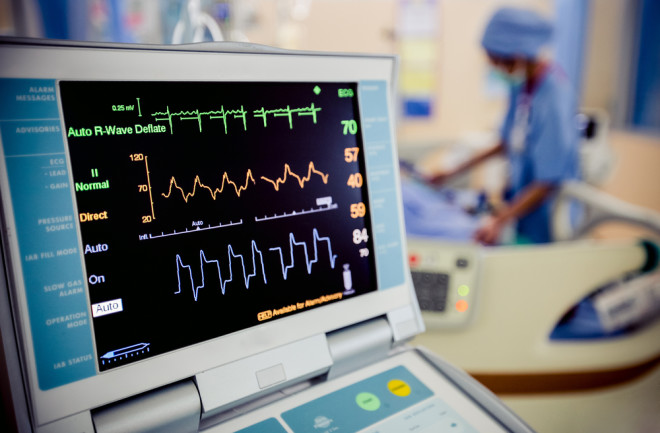An electrocardiogram (ECG) is a simple test that doctors perform to determine your heart’s rhythm, routine, and electrical activity. If your doctor or cardiologist suspects you have a heart condition, he or she might request an ECG. Usually, it takes only 5-10 minutes and the electrodes to the patient’s chest, arms and legs.
It’s quite normal to be nervous or anxious before the test. However, understanding how it works and what you can do to prepare will help you relax. Our most recent blog post will educate you on how to prepare for an ECG with an expert cardiologist.
Importance of ECG Preparation:
Generally, preparation for an ECG is relatively straightforward, but it is crucial for several reasons:
- Ensuring the test results are accurate and not influenced by external factors.
- Making the experience as comfortable as possible for you.
- Helping the healthcare providers conduct the test smoothly and efficiently.
Steps to Prepare for an ECG:
1. Follow Medical Advice
If your doctor has given you specific instructions regarding the ECG, follow them carefully. This might include information on medications, diet, or other preparatory steps unique to your health condition.
2. Medications
Discuss with your doctor whether you need to adjust your medications before the test. Certain medications can affect heart rate and rhythm, potentially influencing the ECG results. Do not stop or alter any medication without your doctor’s guidance.
3. Avoid Caffeine and Alcohol
It’s advisable to avoid caffeine and alcohol for at least 24 hours before the test. Both substances can affect your heart rate and potentially alter the ECG readings. Stick to water and non-caffeinated, non-alcoholic beverages.
4. Eating Before the Test
In most cases, you can eat normally before an ECG. However, avoid heavy meals right before the test as they can cause discomfort and affect your heart rate. A light meal a few hours before the procedure is usually best.
5. Clothing
Wear comfortable, loose-fitting clothes on the day of your ECG. This makes it easier to place the electrodes on your chest. You may be asked to change into a hospital gown, so choose clothes that are easy to remove.
6. Personal Hygiene
On the day of the test, ensure your skin is clean and free from oils or lotions, as these can interfere with electrode adhesion. Take a shower and avoid applying any lotions, creams, or oils to your chest, arms, or legs.
7. Shaving
If you have a lot of hair on your chest, arms, or legs, the healthcare provider might need to shave small patches to ensure good contact with the skin. Consider shaving these areas yourself before the test to save time and avoid discomfort.
8. Relaxation
Try to stay calm and relaxed before and during the ECG. Anxiety can increase your heart rate and affect the results. Practise deep breathing or other relaxation techniques if you feel nervous.
What to Expect During the ECG:
Knowing what to expect can help alleviate anxiety and make the process smoother:
- Patients should ensure that they keep time and get to the medical facility on time. You may be given some paperwork to complete; this may include a health questionnaire.
- Sometimes you may be required to wear this gown for the consultant to examine you. It is also important that you provide a clean environment and do not wear any pendant ring, or any other accessory that may endanger the test.
- A practitioner will place small electrodes on your chest, arms, and legs, using adhesive gel to help the electrodes stick. If required they could trim small areas of skin to facilitate the contact with electrodes.
- You will need to remain still in an examination bed and have electrodes attached to your chest to capture the electrical signals of the heart. It is necessary to sit with your hands folded and not move around or even attempt to take a breath that is deeper than the one which has just been taken.
- You will be asked to get dressed and the technician will then take out the electrodes. The results will be evaluated by the doctor, however, he will only come later and explain it to you.
After the ECG:
After the ECG test, there are usually no restrictions in terms of what one may do or not do. You can go back to your normal routine right away unless your doctor has otherwise advised. They are as follows: The results will be analysed; The results of the test will be explained in detail by your doctor when you return for a follow-up appointment. If there are some issues, additional assessment or care management may be advised.
A Guide on How to Make Your ECG Smooth:
- Inform your doctor on any issue or if you have feelings of unlikeability at any point in the process.
- Take water before the test to avoid dehydration, but do not be full to avoid frequent bathroom breaks during the test.
- Another thing that should be considered when doing an ECG is that it should be done in a laid-back moment when you are not stressed or in a hurry to do something else.
Conclusion – Visit the German Heart Centre!
This is the normal process of undergoing ECG in Dubai and since it truly is a simple test, there are several tips on how to prepare for it which are very useful if the procedure is to be effective. It’s important to know what happens the next time you undergo an ECG, familiarising yourself with what you should expect if you are to do it confidently.
Make sure to adhere to any particular guidelines, which your healthcare provider might have given you and express any worries you have out loud. An ECG is a very useful test in determining the condition of the heart, and how well one is prepared is also important in the results.

